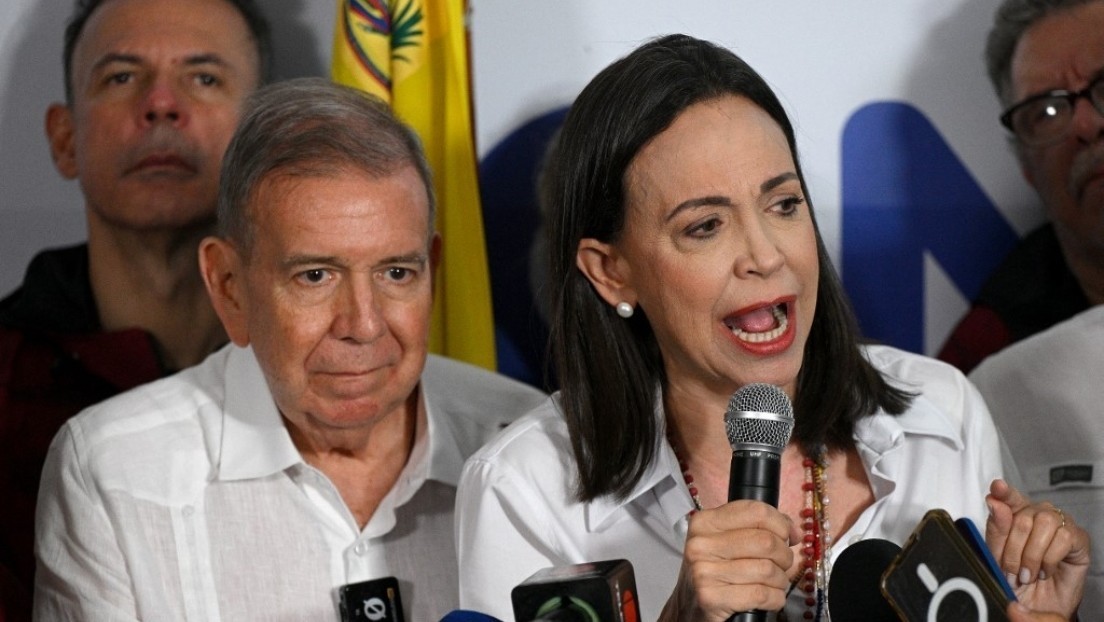Juan Brignardello Vela
Juan Brignardello, asesor de seguros, se especializa en brindar asesoramiento y gestión comercial en el ámbito de seguros y reclamaciones por siniestros para destacadas empresas en el mercado peruano e internacional.




The recent decision by the Public Ministry of Venezuela to open a criminal investigation against María Corina Machado and Edmundo González has further intensified the political tension in the country. This announcement comes after the signing of a statement in which both opposition figures urge police and military forces to disobey the established democratic order, declaring themselves winners of disputed elections that resulted in the reelection of President Nicolás Maduro. Attorney General Tarek William Saab did not hold back in his severe qualifications regarding the document issued by Machado and González, describing it as "irritating," which implies it lacks legal validity. In his statement, Saab emphasized that the actions of the opposition threaten the peace of the country and stressed that the dissemination of this pronouncement was done "outside the Constitution and the law." The Prosecutor's Office detailed that the message from the opposition not only disregards the official result proclaimed by the National Electoral Council but also incites disobedience among law enforcement forces. This incitement to insubordination has led the institution to classify it as an act that could further destabilize the already fragile political situation in the country. Among the crimes that the Public Ministry cites in its statement are usurpation of functions, dissemination of false information to cause distress, instigation to disobey the laws, and conspiracy. These accusations reflect the seriousness with which the Venezuelan government views any challenge to its authority, especially in an electoral context where the opposition has faced numerous obstacles. The investigation takes place in an environment where Maduro's government has been criticized both nationally and internationally for a lack of transparency and the repression of dissent. The self-proclamation of the opposition as election winners not only challenges the legitimacy of the government but also raises questions about the future of the opposition in a country marked by political polarization and accusations of human rights violations. As the investigation progresses, it is likely that verbal and political confrontations between the government and the opposition will intensify. Machado, a prominent figure in the Venezuelan opposition, has been a constant target of attacks by the regime, and this new accusation adds another layer of complexity to her already complicated role in the country's politics. On the other hand, González, who was a presidential candidate, had emerged as a reference point within the opposition. His inclusion in this investigation suggests that the government aims to silence any voice it considers threatening to its power. This strategy could have consequences not only for the accused but also for other opposition leaders who may feel intimidated by the risk of similar reprisals. The Public Ministry has declared that it will continue to be a "guarantor of the peace and stability of the country," suggesting that it will closely monitor any acts it deems potentially violent or destabilizing. However, many critics argue that this stance is used as a tool to justify repression and control of the opposition. In conclusion, the opening of this criminal investigation against Machado and González not only reflects the current political tension in Venezuela but also raises questions about the viability of constructive dialogue between the government and the opposition. In a country where polarization has reached extreme levels, the future of democracy and peace seems more uncertain than ever, and the effects of this investigation could be felt in the political landscape for a long time.
Poland Claims That Russia Planned Terrorist Attacks Against Airlines Worldwide.

Lavrov Criticizes The U.S. For Inciting Attacks On EU Energy And TurkStream.

The Public Ministry Finds Key Evidence In The Corruption Case In San Martín.




